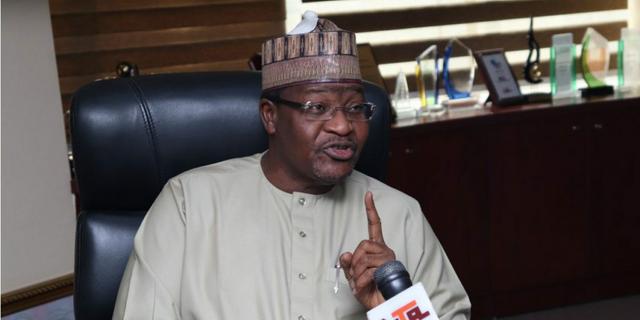The Nigeria Communication Commission (NCC) has issued a request for the authority to be exercised as well as control to be exercised over the mining and exploitation of data in order to maximise the value of data and minimise the costs and hazards associated with data.
On Thursday in Lagos, Nigeria, the Executive Vice-Chairman (EVC) of the Nigerian Communications Commission (NCC), Umar Danbatta, made the request during his keynote talk at the Nigeria Digital Sense Forum, which was arranged by ITRealm.
Read also: Accessing 5G Network in Nigeria
5G: Data Governance, Safety and Security in Nigeria
According to reports from the News Agency of Nigeria (NAN), the topic of discussion during the forum was “5G: Data Governance, Safety and Security in Nigeria”.
Chukwudi Diugu, who is the head of New Media and Information Security at the NCC, acted as Mr Danbatta’s representative at the meeting.
According to the EVC, data is an indispensable component of the digital economy, and the development of solid legal frameworks for data governance should be everyone’s top priority.
According to him, even as we acknowledge the potentially revolutionary effects of 5G, we must also make the protection of users’ data a top priority.
He stated that the volume of data generated by 5G technology was unprecedented, and as a result, the need to always prioritise the privacy of consumers, transparency in data use, and ethical use of data was essential.
“By cultivating trust and handling data responsibly, we can unlock the full potential of 5G technology and promote innovation in Nigeria.
It is common knowledge that Nigeria is an extremely technologically advanced nation, and the introduction of 5G technology has ushered in a plethora of new potential as well as concerns, particularly in the areas of data governance, safety, and security.
He claimed that “5G technology has enhanced capabilities that will provide superior communications services for the socio-economic development of Nigeria and facilitate the attainment of a National Digital Economy.”
According to him, we are obligated to take into account the difficulties that will inevitably arise as a result of it, in particular with regard to the privacy and security of user data.
According to Mr Danbatta, the NCC Act stipulates that its licensees restrict their network facilities or services from being used for illicit purposes. This is to safeguard the safety and protection of the networks as well as the customers who utilise them.
The Executive Vice President (EVC) stated that the legislation prevented licensees’ networks from being utilised in the commission of any offence under any law in operation in Nigeria or in relation to the commission of any such offence.
In this regard, he stated that licensees were obligated to assist the commission and other law enforcement authorities in Nigeria in their efforts to prevent crime in the country.
During the rollout of the 5G technology, Mr. Danbatta stated that the National Communications Commission (NCC) is dedicated to establishing a culture of safety and security.
According to him, this can be accomplished by employing data governance practises that adhere to ethical standards, implementing stringent security precautions, and establishing regulatory frameworks.
He stated that a communal commitment to data governance, safety, and security was also necessary for the successful rollout of 5G technology.
By 2028, 270 million MENA subscribers will have access to 5G
The need for partnership
According to the EVC, in order to construct a digital ecosystem that is safer, more secure, and more welcoming to all users, all parties involved, including the government, regulators, operators, service providers, and individual users, must work together to establish a safe and sustainable environment in which this technology can thrive.
The occasion’s chairman, Adesina Shodiya, who is also the President of the Nigeria Computer Society (NCS), stated that everyone should take precautions to guarantee that the internet and technology are used safely.
No matter what line of work one is in, according to Mr. Shodiya, one should always be thinking about how to improve one’s career.
However, he highlighted that no system was completely safe from attacks and that it was essential to exercise caution when utilising technology and the internet.
Francis Uzor, the Chief Executive Officer of Wisdom Computers, emphasised the duties of citizens in the presentation that he gave on 5G Open Access and the Role of Citizens.
Mr Uzor noted a number of different tasks that citizens play, including advocacy, active digital citizenship, monitoring and accountability, and digital inclusion, amongst others.
In his welcome address, Remmy Nweke, the Lead Consulting Strategist for Digital Sense Africa, stated that the forum, which was currently in its 14th edition, had continued to serve as an annual gathering place for internet stakeholders.
According to Mr Nweke, the many stakeholders in the country gather together in order to discuss and propose solutions to improve the difficulties that surround internet governance, security, and the socio-economic consequences of using the internet.
He stated that the focus was on students, young people, women, and organisations that were centred in the community.




